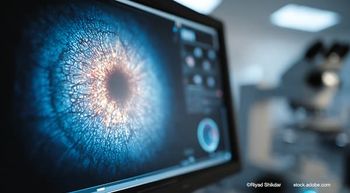
Reversal of retinal ganglion cell dysfunction happens after IOP reduction
A study has shown that the surgical reduction of IOP causes the reversal of retinal ganglion cell (RGC) dysfunction.
A study has shown that the surgical reduction of IOP causes the reversal of retinal ganglion cell (RGC) dysfunction. It was also found that the pattern electroretinogram optimized for glaucoma screening (PERGLA) can be a non-invasive technique to measure RGC function.
Mitra Sehi, Research Assistant Professor of Ophthalmology at Bascom Palmer Eye Institute, University of Miami, USA, conducted a prospective cohort study of 47 eyes of 47 patients with uncontrolled IOP. The patients underwent a total ocular examination, arterial blood pressure, standard automated perimetry (SAP) and PERGLA before surgery and three months after surgery.
The results indicated that mean postoperative IOP was significantly reduced compared with preoperative IOP. PERGLA amplitude after surgery increased compared to preoperative PERGLA amplitude. Thirty-four of the 47 eyes underwent trabeculectomy with antifibrosis therapy, 13 eyes had glaucoma drainage implant surgery.
The conclusion was that the reversal of RGC dysfunction happens after surgical reduction of IOP and can be measured using PERGLA.
Newsletter
Get the essential updates shaping the future of pharma manufacturing and compliance—subscribe today to Pharmaceutical Technology and never miss a breakthrough.




























